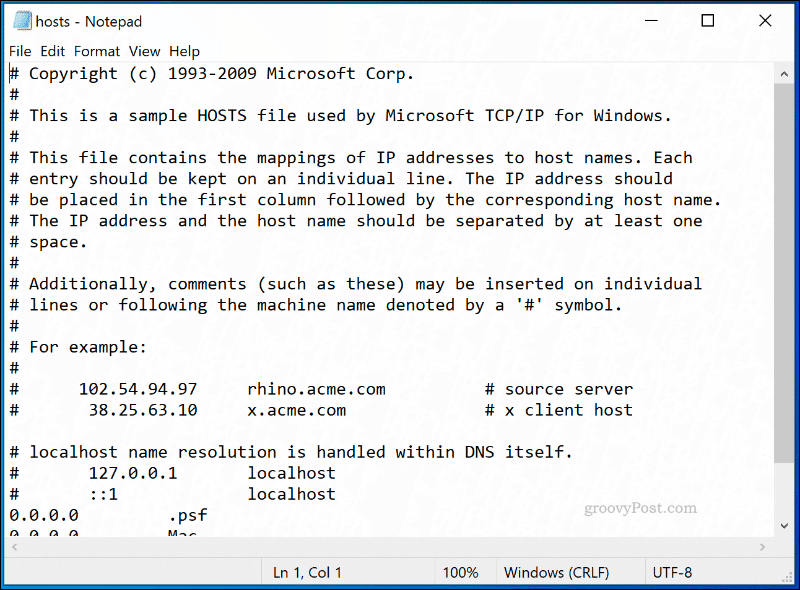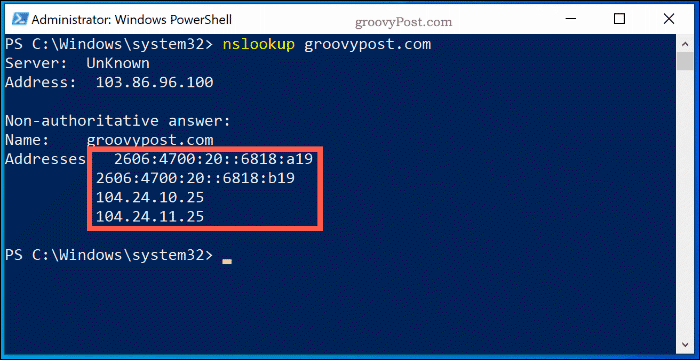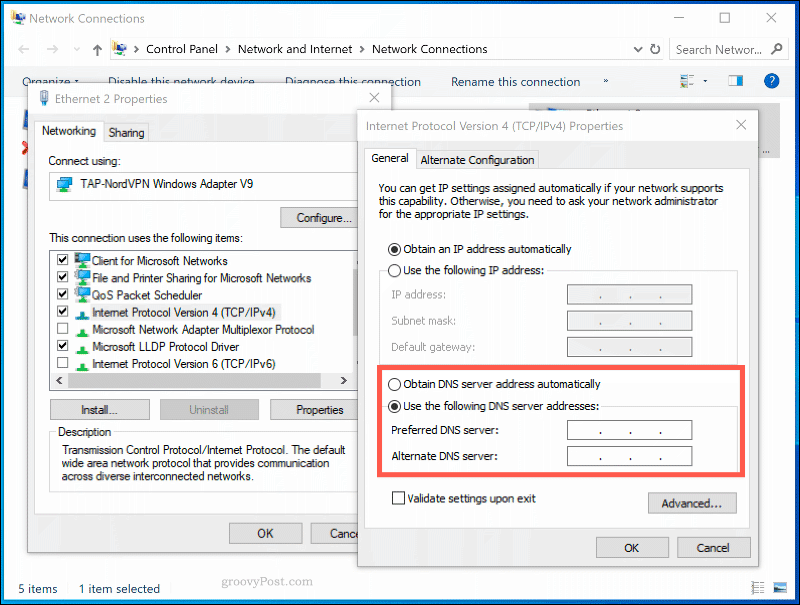What is DNS and Why Does it Matter?

DNS stands for Domain Name System. It is a critical component in how the internet works. Here’s what you need to know about it.
Without the Domain Name System (DNS) in place, you wouldn’t be reading this article. Everything from websites to email servers would be crippled without DNS in place.
Because of how it works, DNS has played a huge part in making the internet a global success story. Let’s explain what DNS is, how it works, and why it matters in greater detail.
Related Articles:
- Change DNS settings on Microsoft Windows
- Configure a custom DNS server on iPhone and iPad
- Set a Customer DNS config on your Wi-Fi Router
What is DNS?
When you click on a link to groovyPost or type our domain name (groovyPost.com) into your web browser, the Domain Name System points it to our IP address.


That’s the Domain Name System (DNS) in action. Rather than remembering the complex digits and characters of IPv4 and IPv6 addresses, you’re able to type in groovyPost.com and have it bring you straight here. The same applies to every other website on the web today.
Almost every app or service that uses the internet will take advantage of DNS. When you send an email, the domain name after the at (@) symbol is used to point the email to the right mail server, for instance.
How DNS Works
DNS converts IP addresses into domain names, but it takes a few steps to get to that point.
First, domain names like groovyPost.com are registered with a registrar that controls one of the top-level domains (TLDs) like .com. When you register a domain name, you point it to your web server.
This is done by registering an “A” record containing the IP address of your web server with the registrar. This record is then logged with a top-level domain (TLD) name server.
A set of 13 root name servers, controlled by government agencies, universities, and major communication companies, sits at the top of the DNS tree. These contain information about top-level domains, acting as the authoritative “last word” in pointing domain name queries to the TLD name servers.
These domain names are then shared across a decentralized network of millions of smaller servers across the internet, including those provided by internet service providers. When a change occurs, that information is shared with other name servers.
When you try to visit a website, your PC will (usually) query your ISP name servers for the IP address. The ISP’s servers will query other servers, like the TLD and root name servers, for the information it needs. It then passes this information on to your device to load the appropriate website.


If you want, you can change the DNS records for other sites—on your PC only. Changing the HOSTS file on Windows will let you point domain names like google.com to an entirely different IP address, but this change will only apply to your PC.
Why Does DNS Matter?
We’ve stressed it a little already, but DNS is responsible for how we use the internet. Without it, you wouldn’t be here at groovyPost, using Google, accessing Facebook, watching Netflix, or sending emails in Outlook.
This is because remembering a domain name like groovyPost.com is generally much simpler than remembering an IP address. Another problem with IP addresses is that, unlike a domain name, they can change.


If we were to switch our web hosting provider for groovyPost, for instance, our IP address might change. Without DNS, our users wouldn’t be able to find us without knowing the new IP address.
Switching to Alternative DNS Servers
The first stage of a DNS query is to a recursive name server, usually supplied by your ISP. A recursive name server will either provide you with the IP address that matches your domain name from its cache, or it will request the information.
Unfortunately, ISP-provided DNS servers aren’t always well-run. They can be slow, either to update or to respond to queries. Slow-loading websites could point to a problem with your ISP-provided DNS servers, especially if your connection is stable.


Fortunately, many free, public DNS options exist for reliable companies like Cisco (OpenDNS), Cloudflare, and Google. Not only do they have superior performance to most ISP DNS servers, but they also provide value-added services like Malware and Adult content filtering.












